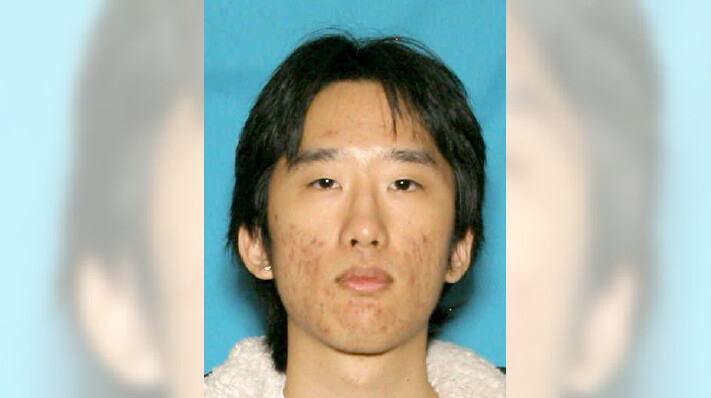A Washington state man who was accused of providing bomb-making materials to the person who detonated a car bomb that destroyed a Palm Springs fertility clinic died Tuesday while in federal custody in Los Angeles.
Daniel Park, 32, was found unresponsive around 7:30 a.m. at the Metropolitan Detention Center in downtown Los Angeles and later died at a hospital, according to the federal Bureau of Prisons. A cause of death was not immediately announced.

“No employees or other incarcerated individuals were injured, and at no time was the public in danger,” according to the bureau.
Park was arrested and charged earlier this month with providing and attempting to provide material support to a terrorist.
Park was arrested June 3 at John F. Kennedy International Airport in New York as he returned to the United States from Poland, after being deported from that country, U.S. Attorney in Los Angeles Bill Essayli said. Park “left the United States to go to Europe” days after the May 17 bombing at the American Reproductive Centers clinic at 1199 N. Indian Canyon Drive in Palm Springs.
According to Essayli, Park shipped about 180 pounds of ammonium nitrate — which is “commonly used to construct homemade bombs” — to clinic bomber Guy Edward Bartkus, 25, and also arranged for another shipment of an additional 90 pounds. Bartkus was killed in the blast.
“During the investigation (of the bombing), law enforcement learned of Bartkus’ pro-mortalist … and anti-pro-life extremist ideology,” Essayli said. “We also learned that the bomber had help.”
He said Park “shared Bartkus’ extremist beliefs” and visited Bartkus’ home in Twentynine Palms for about two weeks in late January and early February, “spending time together running experiments in Bartkus’ garage, where the FBI recovered large quantities of chemical precursors and laboratory equipment after the bombing.”
Three days before Park arrived at Bartkus’ house, records from an AI chat app show that Bartkus researched how to make powerful explosions using ammonium nitrate and fuel, federal prosecutors said.
FBI Assistant Director in Charge in Los Angeles Akil Davis said Park was also in possession of an “explosive recipe” similar to the device used in the deadly 1995 Oklahoma City federal building bombing.
Park and Bartkus are believed to have met online via their shared extremist views, authorities said.
The fertility clinic was largely destroyed by the car bomb that went off shortly before 11 a.m. May 17. Bartkus was killed in the blast. His alleged online manifesto espouses disdain for families and childbirth in general.
Embryos and other lab-preserved endowments are maintained at the clinic, which sustained extensive damage, but clinic officials said none of those materials were destroyed in the blast.
Other buildings in the vicinity suffered damage from the explosion, such as broken windows and structural damage. Essayli noted the blast caused a debris field of about 250 yards.
Four people were hurt, but none severely.
FBI officials called the explosion “largest bombing scene that we’ve had in Southern California.”
Bartkus tried to livestream the explosion, but his attempt failed, according to the FBI.
Davis said there was no indication that Bartkus had identified other possible bombing targets, and the size of the bomb used in the clinic blast was still being investigated.
Originally Published:



















